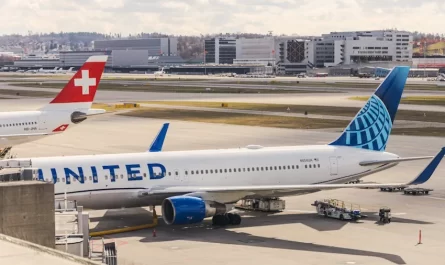Navigating the Skies with Food Allergies: A Guide to Safe Flying
Contents
Airlines prioritize passenger safety, including those with significant food allergies. While most airlines have stopped serving pre-packaged peanuts, they do offer a variety of meals and snacks that may contain major allergens due to the nature of their preparation and serving processes.
Given this, airlines cannot assure an entirely allergen-free meal or environment during flights. Also, it’s impractical to control the presence of food brought onboard by other passengers that may contain allergens, such as peanuts. If you have a severe allergy and are flying, please inform a flight attendant once onboard. We will do our best to establish an allergy buffer zone by asking nearby passengers to avoid consuming any products with allergens you’re sensitive to.
Flying with food allergies can seem daunting, but with the right preparation and knowledge, you can enjoy a safe and comfortable journey. Let’s explore the common questions and concerns, ensuring you’re well-prepared for your next high-flying adventure!
Does Flying Trigger Allergies?
Flying itself doesn’t inherently trigger food allergies, but the close quarters and shared air can increase the risk of exposure to allergens. The most common airborne allergens that might cause concern include peanuts and tree nuts, given their prevalence in airline snacks. However, being informed and prepared can significantly reduce risks.
Informing Your Airline of Food Allergies
Communication is key! It’s essential to inform your airline about your food allergies when booking your ticket and then again when checking in. Many airlines are accommodating and can offer alternative snacks, meals, or even make announcements to nearby passengers requesting they refrain from consuming specific allergenic foods. Don’t hesitate to speak up—it’s about your health!
Can You Eat Nuts on a Plane if Someone Has a Nut Allergy?
Airlines have different policies regarding nut consumption onboard. If a passenger has informed the airline of a severe nut allergy, some airlines may not serve nuts during that flight or may ask passengers in the immediate vicinity not to consume nuts. However, policies vary, so it’s wise to check with your airline beforehand and take necessary precautions, like bringing your own safe snacks.
Can Food Allergies Be Transferred by Air Movement?
Yes, though it’s rare. Particulate matter from allergenic foods, like peanut dust, can become airborne and potentially trigger reactions in highly sensitive individuals. The risk is relatively low, but for some, even minor exposure can cause symptoms. It’s another reason why informing your airline and fellow passengers can help minimize risks.
Can Airborne Food Allergies Cause Anaphylaxis?
Though rare, there have been reported cases where airborne particles from allergenic foods have triggered anaphylaxis in extremely sensitive individuals. This severe allergic reaction requires immediate treatment with epinephrine (such as an EpiPen) and medical attention. Carrying your EpiPen or other prescribed allergy medication is a non-negotiable part of flying safely with food allergies.
Tips for a Safe Journey
Inform and Confirm: Always inform your airline about your allergies when booking and again at check-in. Confirm their policies for managing allergens onboard.
Carry Medication: Always have your allergy medication, including an EpiPen, easily accessible in your carry-on luggage.
Bring Safe Snacks: Pack your own allergen-free snacks to avoid any uncertainties with airline food.
Clean Your Space: Use disinfectant wipes to clean your tray table, seat belt, and armrests to remove potential allergen residues.
Communicate: Don’t be shy about informing flight attendants and even neighboring passengers about your allergies. Most people are willing to cooperate to ensure everyone’s safety and comfort.
Traveling with food allergies doesn’t have to ground your wanderlust. With the right preparations and precautions, you can soar the skies safely. Always prioritize your health by planning ahead and communicating your needs. Here’s to safe travels and broad horizons, free from the worry of food allergies!
Stay Healthy while TravelingWhat vaccines do I need before I travel?
Medications to Take on Every Trip
Travelers Thrombosis: Blood clots in the leg veins
Flight Anxiety: Overcome fear of flying
Flying with Food Allergies
In-Flight Emergencies: Airplane’s Medical Kit
Flying with EpiPens
Can I use my health insurance overseas?
What to do if you get sick during a flight
How can I prevent malaria when traveling?
Preventing Travel Dangers: Tips and Strategies
How to Avoid Motion Sickness on Airplanes
Flying with Medication: Dos and Don'ts
The food to Avoid While Flying
Tips on Staying Healthy While Traveling
Things Not to Wear on a Airplane
How Clean is Your Airplane?



